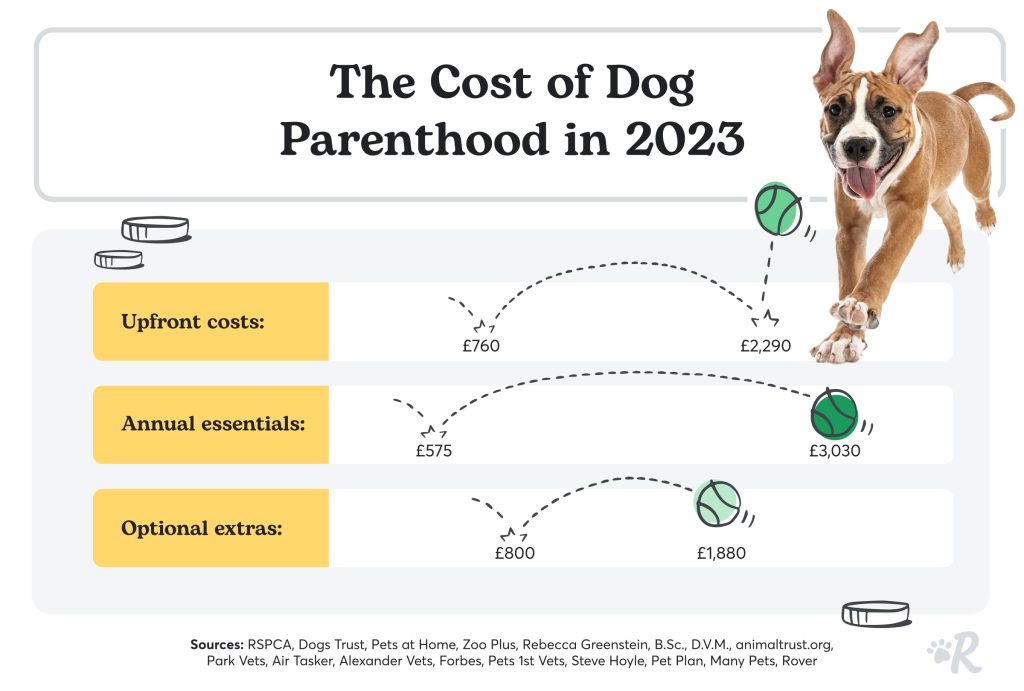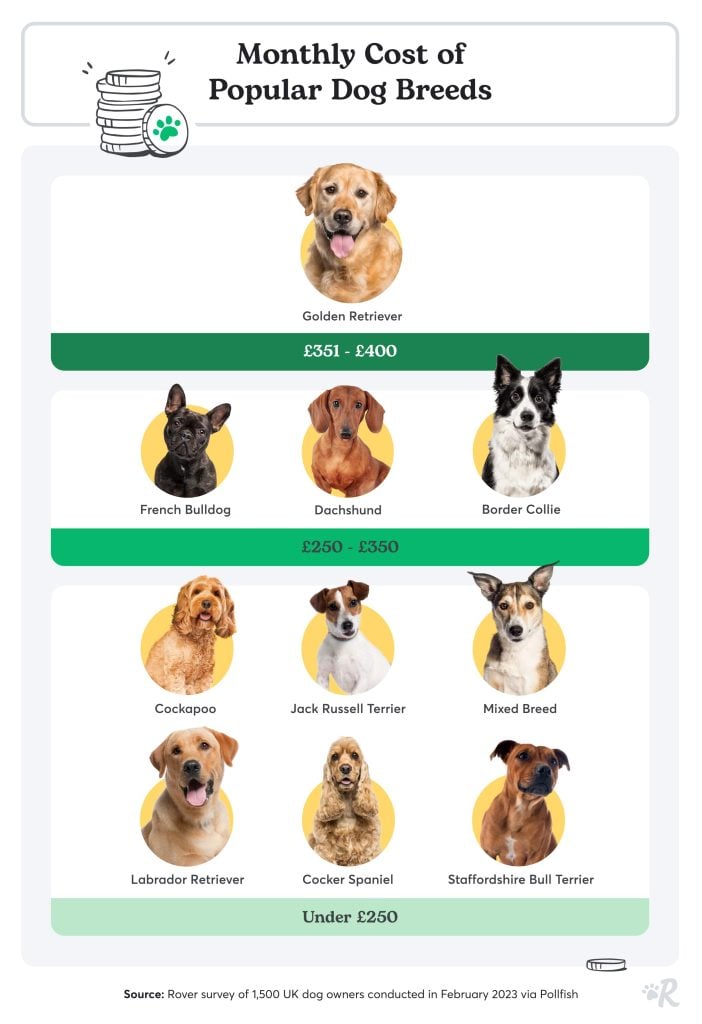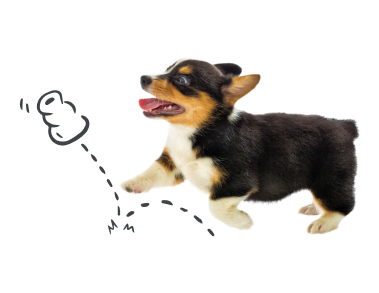When you first get a dog, there can be a lot of one-time, upfront costs. It can seem daunting at first but you’re not alone. We have checklists to help you figure out essentials and what to expect in terms of cost. By budgeting ahead, you can alleviate financial anxiety and increase your confidence in being a
supportive pet owner!
How much you spend depends on whether your dog prefers the basics or if they can puppy-eye you into splurging. According to our research, the total of bringing your dog home typically ranges from £760 to £2,290 for the
first year.
| Item |
From |
To |
| Adoption fees |
£180 |
£180 |
| Spay or neuter surgery |
£255 |
£430 |
| Microchip |
£22 |
£50 |
| Initial vet exam and vaccinations |
£95 |
£185 |
| Collar or harness |
£5 |
£120 |
| Lead |
£5 |
£100 |
| Food bowls |
£5 |
£125 |
| Poop bags |
£5 |
£25 |
| Crate |
£20 |
£275 |
| Bed |
£15 |
£175 |
| Shampoo and brush |
£10 |
£45 |
| Stain and odor removers |
£5 |
£20 |
| Potty pads |
£5 |
£105 |
| Toys |
£5 |
£45 |
| Treats |
£5 |
£75 |
| Basic veterinary care |
£85 |
£250 |
| Food |
£25 |
£100 |
| Total |
£760 |
£2,290 |
Adoption
When it comes to buying a dog, adoption fees are around £180. Don’t forget a microchip either, which typically costs between £22 and £50 for a dog, depending on where you live.
Vet visits and vaccinations
Regardless of where your dog comes from, you’ll want to get them checked by a vet when you bring them home.
Here’s how vet visits break down in the first year:
- The first vet visit, which covers vaccinations can cost anywhere from £95-£185.
- Spay or neutering can cost anywhere from £255-£430. You’ll want to budget for this within the first year, if your dog isn’t spayed or neutered yet. However, if you adopt, the adoption fee may cover a spaying or neutering appointment.
- Additional vet visits for younger dogs may include a wellness exam and parasite prevention. These can average between £85-£250 for new pet owners.
Your dog’s visit may be more than once a year too, depending on their age or health conditions they may have. Make sure you’re prepared for other medical expenses your new dog may need.
New dog supplies
Next up are the essential supplies to keep your new dog comfortable at home.
Many of these dog items will vary in cost based on factors like your dog’s size, the type, and where you get it from:
- collar/harness (£5-£120)
- lead (£5-£100)
- Poop bags (£5-£25)
- food and water bowls (£5-£125)
- crate (£20-£275)
- bed (£15-£175)
- toys (£5-£45)
- treats (£5-£75)
Toys and treats are also an important part of getting your dog to create positive associations with their new home and bond with you.
The cost of keeping your home and your dog smelling great can vary as well. If you need to house-train your pup inside, puppy training pads can cost anywhere from £5-£105. You may skip the potty pads if adopting an adult dog but don’t skimp on grooming tools. Depending on your dog’s fur needs, dog shampoo and brushes can cost anywhere from £10-£45, while stain and odour removers for your carpet cost up to £20.
Like all things, initial expenses can range depending on your dog’s breed and size but also your own preferences and lifestyle as a pet owner. When choosing your dog, don’t forget to do some breed-specific research and take a look at the price ranges for each expense. Maybe you’ll discover that making your own dog toys, in order to splurge on treats, is the money-saving hack for your budget planning.






